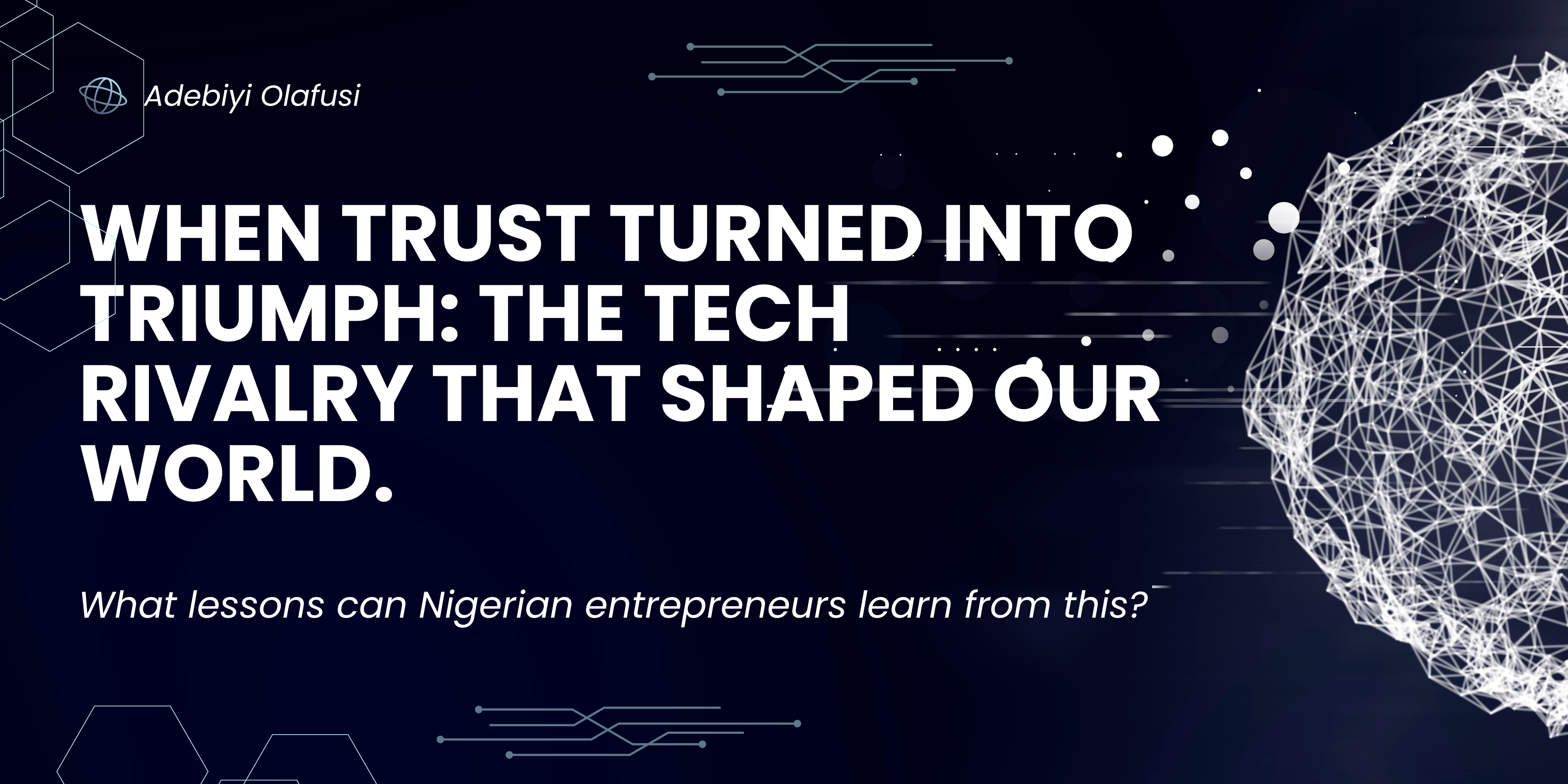
Back in the late 1970s, two small companies – Apple and Microsoft, dreamed big. They weren’t rivals yet. It gets interesting afterwards.
Apple crafted sleek personal computers that screamed creativity, while Microsoft cooked up software to power machines far and wide. In places like Nigeria today, where startups hustle to solve local problems with global tools, these two were the originals – young, scrappy, and ready to shake things up.
At first, they teamed up. Steve Jobs, Apple’s visionary captain, imagined computers anyone could use – no geeky codes, just clicks. He poured his heart into the Macintosh, a machine with a friendly face: icons you could tap instead of cryptic commands. Microsoft, led by Bill Gates, jumped in to build software for it. Jobs opened the doors wide, trusting Gates like a business brother. Then came the twist that flipped the script.
Right as Apple prepped to unveil the Macintosh, Microsoft dropped a bombshell. They’d been quietly brewing their own potion – Windows. It wasn’t just similar to Apple’s creation; it was a near mirror image. Jobs erupted. “You stole from me!” he roared at Gates. Cool as ice, Gates fired back: “Steve, we both peeked through Xerox’s window, I just grabbed the goods first.”
Xerox had pioneered the idea of a graphical interface years earlier, but Apple had polished it into something magical. Now Microsoft snatched that sparkle and handed it to every PC maker willing to pay. In Nigeria’s bustling markets, this is like a rival taking your jollof rice recipe and selling it cheaper across Lagos!
Apple clung tight to its exclusive approach – Mac software stayed locked to Mac hardware. Microsoft? They flung Windows open to all, letting it run on any device that could handle it. By the early 1990s, Windows surged ahead, flooding homes and offices worldwide. Apple stumbled, its market share shrinking fast. By 1997, the company teetered on the edge, bleeding cash and weeks from collapse.
Then Jobs pulled off a move no one saw coming. At the 1997 Macworld event, he stood before a stunned crowd and revealed a lifeline, from Microsoft. Boos rained down. Gates, the guy who’d spent years outpacing Apple, pledged $150 million to keep it afloat. In return, Apple welcomed Microsoft Office to Macs. Fans fumed, but Jobs saw the bigger picture: survival demanded bold plays.
That cash didn’t just plug holes, it signaled Apple wasn’t done. Still, Jobs craved more than a pulse. He wanted dominance. In 2001, he unleashed the iPod – a pocket-sized revolution. Sleek and simple, it turned heads while Microsoft stayed glued to PCs. Nigeria’s entrepreneurs get this: spot a gap, move fast, and own it.
The hits kept coming. The iPhone in 2007 rewrote what phones could be. The iPad in 2010 birthed a whole new game. Apple didn’t just climb back, it soared, leaving Microsoft scrambling. Windows grew clunky, phone flops piled up, and Apple claimed throne after throne. Today, Apple’s worth $3 trillion, a titan in personal tech, while Microsoft pivots to cloud computing to stay relevant.
Jobs turned betrayal into a battle cry. Gates’ lifeline saved Apple once, but Jobs built an empire that outshone them all.
So, the greatest lesson? Trust can spark partnerships, but resilience wins wars. In Nigeria’s cutthroat business scene, or anywhere, setbacks don’t define you. What you build next does.
What do you think? Any lessons hit home for you?
